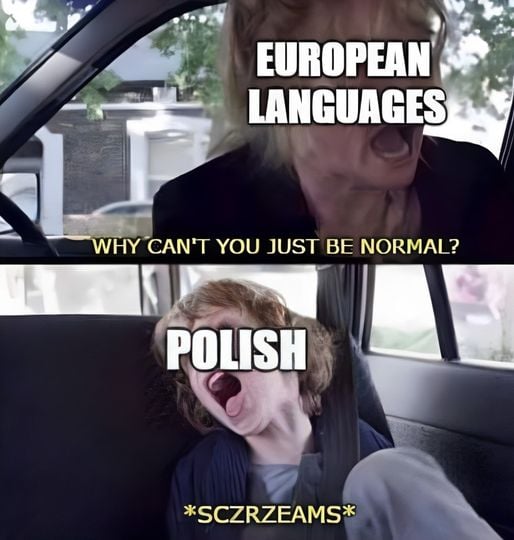this post was submitted on 24 Oct 2024
985 points (98.4% liked)
memes
10411 readers
2534 users here now
Community rules
1. Be civil
No trolling, bigotry or other insulting / annoying behaviour
2. No politics
This is non-politics community. For political memes please go to [email protected]
3. No recent reposts
Check for reposts when posting a meme, you can only repost after 1 month
4. No bots
No bots without the express approval of the mods or the admins
5. No Spam/Ads
No advertisements or spam. This is an instance rule and the only way to live.
Sister communities
- [email protected] : Star Trek memes, chat and shitposts
- [email protected] : Lemmy Shitposts, anything and everything goes.
- [email protected] : Linux themed memes
- [email protected] : for those who love comic stories.
founded 1 year ago
MODERATORS
you are viewing a single comment's thread
view the rest of the comments
view the rest of the comments

Ä, ö, ü, õ, š, ž are just there to allow for phonemic ortography, biatch!
Though then again, I'm fairly sure that the weird Polish letters.
Also if your native tongue DOES have phonemic ortography.... Well guess how difficult it was for 6 year old me in Estonia to start learning English where the words are clearly not written the same way they're spoken????
It gets worse hearing older people here speak English because most of them did NOT start learning the language at age 5 or 6 so uhhhh... Yeah they expect the words to be pronounced the way they're spelled. Makes your ears bleed.
Btw, there's a mising phonetic letter in Swiss German, somewhere between ä and ö, kind of a aeo. But since it's rarely written dialekt (personal chats), we work around this with Umlauts and context.
Õ?
Oh right, french might have them. Soft 'o', right.
Estonian actually. I'm having a hard time thinking of an English word for an example. I guess I'd write bone phonetically as bõun? Or own as õun as well. With the u in our language sounding much like u in bauen or rauchen in German if I'm pronouncing those right.